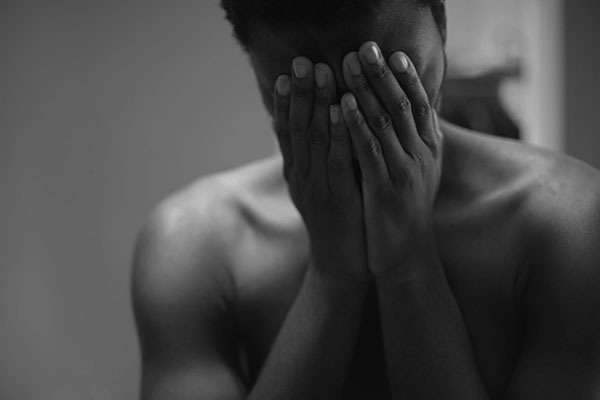By Yvonne Sam
Social and Political Commentator
 OTTAWA, Ontario June 21, 2018 — I was recently invited to be part of one of several discussions — the initial steps in the planning phase — surrounding commitments made in the 2018 Government of Canada Budget, on the health and well-being of Black Canadians.
OTTAWA, Ontario June 21, 2018 — I was recently invited to be part of one of several discussions — the initial steps in the planning phase — surrounding commitments made in the 2018 Government of Canada Budget, on the health and well-being of Black Canadians.
The Budget proposed the investment of $19 million — $10 million administered by the Public Health Agency of Canada, and $9 million administered by Canadian Heritage — over a 5-year period, aimed at enhancing local community supports, for youth at risk, and to develop research in support of more culturally-focused mental health programs in Black Canadian communities.
The issue of mental health is not only taboo among Blacks, but also well hidden, and many look upon mental illness as a “White person’s disease”. Now the government of Canada is poised, and within range, to bring about a cultural change.
For Black-, African- and Caribbean-Canadians, the struggle for mental health is usually a silent one.
Rife within these communities are misunderstandings around what mental illness means and, in addition, barriers that prevent individuals from accessing help or safe spaces, make dealing with depression, anxiety and other disorders, both challenging and complicated.
The opprobrium surrounding mental illness is cumbersome, as Black folks feel that soliciting professional help is a sign of weakness. It is not a topic that is talked about amongst friends or family, as some family members may even ridicule, or make fun of, the individual dealing with the mental illness.
As a result, individuals in the Black community choose to suffer in silence, rather than tell anyone what they may be dealing with. Yes, Blacks have a lot of negative feelings about, or are not even aware of, mental health services.
They are unaware of the symptoms of many mental disorders, or hold the belief that to be mentally ill, is a sign of weakness or a sign of character flaw. We often hear stereotypical claims that “black folks don’t commit suicide” or “black folks don’t suffer from depression”, when, in fact and reality, these do exist.
 From a historical perspective, Blacks have normalized their own suffering. In the era of slavery, mental illness often resulted in a more inhumane way, including frequent beatings and abuse, forcing many slaves to hide their issues. With the passage of time, strength became equated with survival, and weakness – including mental illness – meant questionable survival.
From a historical perspective, Blacks have normalized their own suffering. In the era of slavery, mental illness often resulted in a more inhumane way, including frequent beatings and abuse, forcing many slaves to hide their issues. With the passage of time, strength became equated with survival, and weakness – including mental illness – meant questionable survival.
Sadly, that stigma still exists today. Blacks experience the same mental health issues as the remainder of the population, with arguably even greater stressors, due to racism, prejudice and economic disparities. It is not dependent upon race or gender, and is of extreme importance for any and everyone, regardless of race.
Everyone experiences emotional ups and downs, and Blacks are no exception. Without mental health, we cannot be healthy. Hence many conjecture why Blacks shy away from “getting help” as a potential solution to challenges such as depression, anxiety, post-traumatic stress disorder, marriage problems and parenting issues.
In addition, as a people, we display an ongoing tendency to focus, excessively, on past assumptions and past histories, and have an extremely hard time letting go of the past and focusing on the future. A lot of our prevalent thoughts and beliefs about mental illness are outdated and incorrect, and we are not willing to amend or change our ideologies and assumptions when presented with new information.
Blacks have also hung, fixedly, to the belief that they should be strong enough to overcome mental illness, in the same manner as their ancestors were strong enough to overcome slavery, and other accompanying atrocities. Some believe that we should be able to just pray it away; others believe that we should be able to seek only our pastors.
While spirituality and faith should always play a role in treatment, I am a firm believer that God wants us to practice our free will and seek help for ourselves. We must understand that faith is not just an abstract principle; faith is believing and putting that belief into practice.
Culture biases against mental health professionals and health care professionals, in general, prevent many Blacks from accessing care, due to prior experiences with misdiagnoses
 Now, the Canadian government has openly stated its readiness, and willingness, to deal with the development of culturally-focused mental health programs, as well as community support programs for at-risk youth.
Now, the Canadian government has openly stated its readiness, and willingness, to deal with the development of culturally-focused mental health programs, as well as community support programs for at-risk youth.
To be healthy, as a whole, mental illness plays a role, although mental health and mental illness are not synonymous, although they are used interchangeably. To clarify this statement, everyone has mental health; everyone does not have a mental illness or disorder. Stigma gains power the longer we remain silent.
Reflections
Most of us understand the consequences of untreated mental illness in our community, but I am unsure as to whether we fully understand the consequences of the continued mindset we have developed. It appears as if we have lowered our standards for what we think is acceptable.
Our culture should represent the best of us — our history, our accomplishments, and everything that makes us proud to be Black. However, we act blind to the issues that threaten to overwhelm us, and jeopardize our being as a people, whereas we should be held accountable for the things we create and the impact these things have on our communities.
Frankly speaking, the things we put out there for the world to see, shapes the way the world sees us, especially in the media, where blacks are never pardoned by mental illness or any other circumstance beyond our control. So, we cannot then, be upset when the world only sees us in a negative light.
To the Black community, we need to pay attention, for we are now faced with no recourse, but to simply start the discourse. So let us from the shadows flee, and seek help for our mentally ill, where all can see.
The World Health Organization stated that around 450 million people currently suffer from the conditions, placing mental disorders among the leading causes of ill-health and disability worldwide. www.who.int/whr/2001/media_centre/press_release/en/.
Now that the Canadian government has shown its interest, let us, in turn, do our very best. Mental health determines a community’s wealth; silence is no longer golden, but simply olden.
Yvonne Sam, a retired Head Nurse and Secondary School Teacher, is Vice-president of the Guyana Cultural Association of Montreal. A regular columnist for over two decades with the Montreal Community Contact, her insightful and incursive articles on topics ranging from politics, human rights and immigration, to education and parenting have also appeared in the Huffington Post, Montreal Gazette, XPressbogg and Guyanese OnLine. She is also the recipient of the Governor General of Canada Caring Canadian Citizen Award.
 Pride News Canada's Leader In African Canadian & Caribbean News, Views & Lifestyle
Pride News Canada's Leader In African Canadian & Caribbean News, Views & Lifestyle





